When it comes to our furry friends, knowing the 7 common dog health problems and how to prevent them is essential. Our dogs depend on us to keep them healthy and happy. In this article, we’ll dive into the signs of illness, the importance of early detection, and ways to ensure our pups live their best lives. From nutrition to exercise and grooming, we’ve got tips to keep our dogs feeling great!
Main Points to Remember
- Regular vet check-ups help keep our dogs healthy.
- A good diet and exercise prevent obesity in our pets.
- Dental care is important for our dogs’ overall health.
- We should keep our dogs up-to-date on vaccinations.
- Regular grooming can help spot skin problems early.
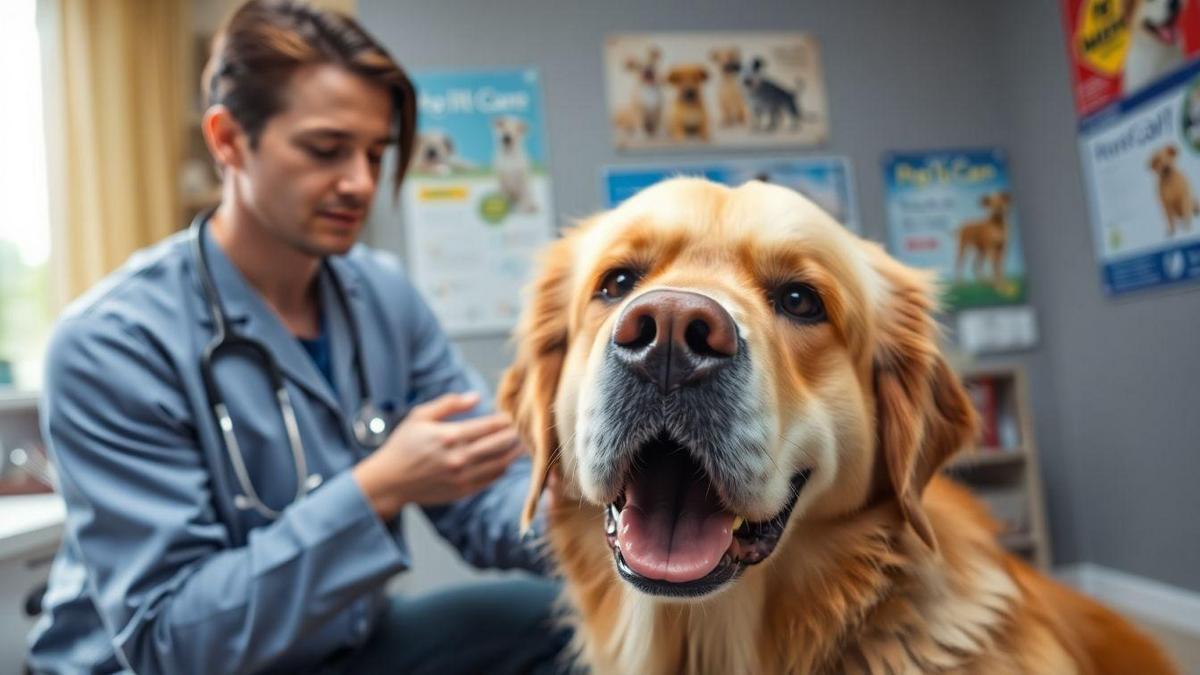
Understanding Common Dog Health Problems
What Are the 7 Common Dog Health Problems?
When we think about our furry friends, their health is always on our minds. Here are the 7 common dog health problems and how to prevent them:
- Obesity: Just like us, our dogs can pack on the pounds, leading to issues like diabetes and joint problems.
- Dental Disease: Bad breath isn’t just a nuisance; it can indicate serious dental issues. Regular brushing helps!
- Ear Infections: Dogs with floppy ears are more prone to these. Signs include scratching at the ears or shaking their head.
- Fleas and Ticks: These pests can spread diseases and make our dogs uncomfortable.
- Skin Allergies: If our dog is itching or has red patches, they might have allergies due to food, pollen, or fleas.
- Gastrointestinal Issues: Vomiting or diarrhea can occur occasionally, but if it lasts, we need to see a vet.
- Arthritis: Older dogs often face this painful joint condition, moving slower or being less active.
Recognizing Signs of Dog Illness
Knowing what to look for can help us spot health issues early. Here are some signs that might indicate our dog is feeling under the weather:
- Changes in Appetite: If our dog suddenly stops eating or is always hungry, it’s time to take notice.
- Lethargy: If they’re not their usual playful selves, something might be off.
- Excessive Thirst: Drinking more water than normal can be a sign of illness.
- Vomiting or Diarrhea: Occasional tummy troubles are normal, but if they persist, we should consult a vet.
- Coughing or Sneezing: Persistent coughing or sneezing can indicate respiratory issues.
Importance of Early Detection
Catching health problems early can make a world of difference. Just like with us, the sooner we address an issue, the better the outcome. Regular vet check-ups can help us stay ahead of potential problems.
For example, if we notice our dog is gaining weight, we can adjust their diet and exercise routine before it leads to serious issues like diabetes. Early detection not only helps our pets live longer but also saves us from costly treatments down the road.
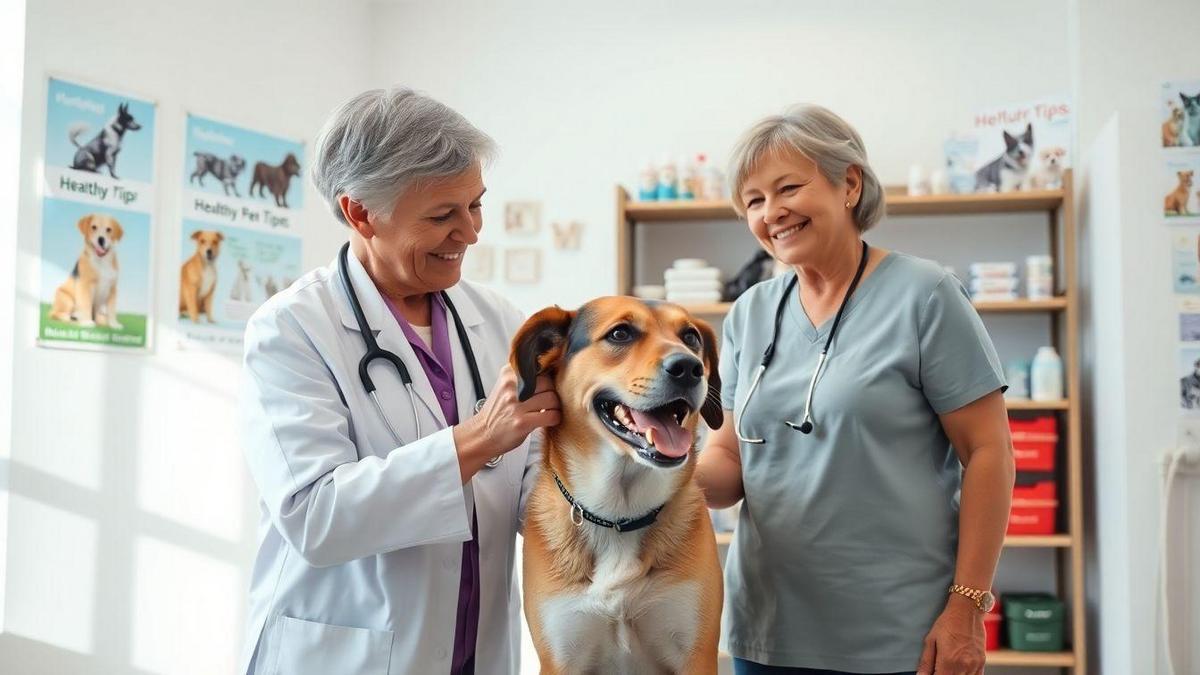
Preventive Dog Healthcare Practices
Regular Vet Check-Ups for Your Dog
We all want our furry friends to live long, happy lives, right? One of the best ways to achieve this is through regular vet check-ups. Just like we visit the doctor for a check-up, our dogs need the same care. These visits help catch any potential health issues early, before they turn into bigger problems.
During these check-ups, the vet will check our dog’s weight, listen to their heart, and look at their teeth. It’s a great time to ask questions about anything we might be worried about. Remember, prevention is key. If we stay on top of our dog’s health, we can help them avoid unnecessary suffering.
Vaccinations and Their Role in Dog Wellness
Vaccinations are crucial for keeping our dogs healthy. They protect our pets from serious diseases like parvovirus and rabies. Think of vaccines as a shield, helping to keep our dogs safe from harmful illnesses.
Here’s a simple table to show some common vaccines and the diseases they protect against:
| Vaccine | Protects Against |
|---|---|
| DA2P | Distemper, Adenovirus, Parvovirus |
| Rabies | Rabies |
| Bordetella | Kennel Cough |
| Leptospirosis | Leptospirosis |
It’s important to keep up with our dog’s vaccination schedule. If we have any doubts about which vaccines our dog needs, we should definitely consult our vet.
Keeping Up with Preventive Care
Preventive care doesn’t stop at check-ups and vaccinations. We also need to think about things like dental care, parasite control, and diet. Regular brushing can help keep our dog’s teeth clean and healthy. For more insights on providing a balanced diet, check out the best diet for your dog’s age and activity level.
Here are a few tips to keep in mind:
- Brush their teeth regularly.
- Check for fleas and ticks after walks.
- Provide a balanced diet to keep them fit.
By staying proactive, we can help our dogs avoid the 7 common dog health problems and how to prevent them. It’s all about making small efforts that lead to big changes in our dog’s health.

Nutrition and Its Impact on Dog Health
Best Foods to Prevent Common Dog Diseases
When we think about keeping our furry friends healthy, nutrition is at the top of the list. Just like us, what our dogs eat plays a huge role in their overall health. Feeding them the right foods can help prevent many common dog diseases.
Here’s a quick look at some of the best foods we can give our dogs:
| Food | Benefits |
|---|---|
| Lean meats | Great for muscle health and energy |
| Fish (like salmon) | Packed with Omega-3 fatty acids for a shiny coat |
| Vegetables (carrots) | Good for eyesight and overall health |
| Whole grains | Provides energy and supports digestion |
| Fruits (blueberries) | Rich in antioxidants to fight diseases |
These foods can help our dogs stay fit and healthy. It’s like feeding them nature’s medicine!
Understanding Dog Dietary Needs
Every dog is different, and their dietary needs can vary based on their age, size, and activity level. For example, puppies need lots of protein for growth, while older dogs may need fewer calories to maintain a healthy weight.
Here are a few key points to remember:
- Puppies: High protein and fat content for growth.
- Adult Dogs: Balanced diet with protein, fats, and carbs.
- Senior Dogs: Lower calories but still need nutrients.
By keeping these needs in mind, we can tailor our dog’s diet to fit them perfectly.
How Nutrition Affects Canine Health
Nutrition doesn’t just keep our dogs feeling good; it helps them thrive! A balanced diet can prevent diseases like obesity, diabetes, and heart disease.
For instance, a dog that eats a lot of junk food may become overweight, leading to joint problems and heart issues. Conversely, a dog that eats a balanced diet with the right nutrients will have more energy and a longer, healthier life.
In short, good nutrition is the foundation of good health for our dogs. It’s like building a strong house; we need a solid base to keep everything standing tall!
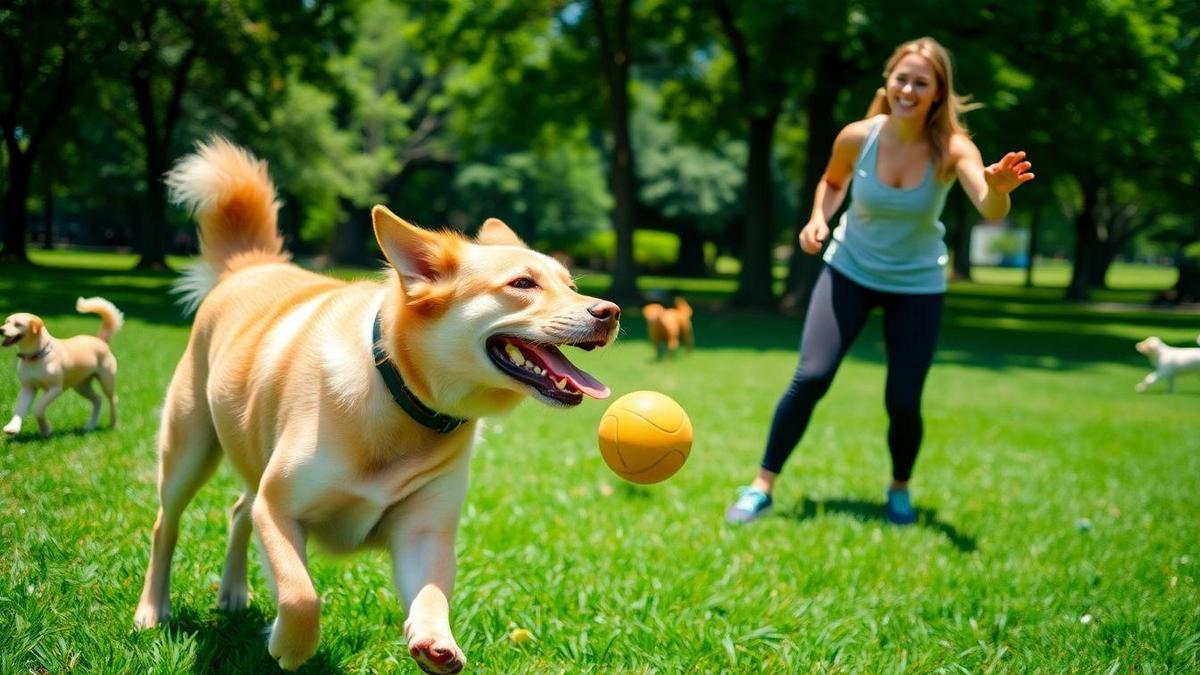
The Role of Exercise in Dog Well-Being
Daily Exercise Routines for Healthy Dogs
Keeping our furry friends active is crucial for their health. Just like us, dogs need regular exercise to stay fit and happy. Here are some easy daily routines we can follow:
- Morning Walks: A brisk 30-minute walk can do wonders. It helps our dogs burn off energy and keeps their weight in check.
- Playtime: After work or school, we can spend some time playing fetch or tug-of-war. These games are fun and help our dogs bond with us.
- Agility Training: Setting up an obstacle course in the backyard is a great way to challenge our dogs physically and mentally.
- Dog Parks: Visiting a local dog park allows our dogs to socialize and run freely. It’s a win-win for both us and our pups!
Benefits of Physical Activity for Dogs
Exercise is more than just a way for our dogs to let off steam; it offers a treasure trove of benefits. Here’s what we gain from keeping our dogs active:
| Benefit | Description |
|---|---|
| Weight Control | Regular exercise helps maintain a healthy weight. |
| Mental Stimulation | Activities keep our dogs’ minds sharp and engaged. |
| Stronger Muscles | Physical activity builds strength and endurance. |
| Better Behavior | A tired dog is often a well-behaved dog. |
| Healthier Heart | Exercise promotes cardiovascular health. |
Keeping Our Dogs Active and Happy
Let’s face it, a happy dog is a joy to be around. When we keep our dogs active, we’re not just improving their health; we’re also enhancing their quality of life. We should try to mix things up to keep it exciting! One day, we might go for a hike, and the next, we could hit the beach for some fun in the sun.
Remember, every dog is different, and their exercise needs can vary. Some breeds require more activity than others. It’s all about finding the right balance that suits our dog’s personality and energy level.
Incorporating exercise into our daily routine doesn’t have to be a chore. It can be a delightful way for us to bond with our dogs while keeping them healthy.

Grooming Tips to Prevent Health Issues
Importance of Regular Grooming
When we think about keeping our furry friends healthy, grooming often doesn’t get the spotlight it deserves. Regular grooming is like a health check-up for our dogs. It helps us spot any potential problems early on, like skin issues or lumps. Plus, it keeps their coat shiny and free from dirt and parasites. Think of it as a way to show our dogs some love while also taking care of their health!
Grooming Tools Every Dog Owner Needs
Having the right tools makes grooming easier and more effective. Here’s a list of must-have grooming tools we should consider:
| Grooming Tool | Purpose |
|---|---|
| Brush | Removes loose fur and prevents matting. |
| Comb | Untangles knots and checks for pests. |
| Nail Clippers | Keeps nails trimmed to avoid injury. |
| Dog Shampoo | Cleans and conditions their coat. |
| Ear Cleaner | Keeps ears free from dirt and infections. |
With these tools in our arsenal, we can tackle the grooming process with confidence.
How Grooming Affects Dog Health
Grooming is more than just a beauty routine; it plays a crucial role in our dog’s overall health. Regular brushing helps reduce shedding, which means less fur around the house. It also promotes better skin health by distributing natural oils throughout their coat. And let’s not forget about those nails! Keeping them trimmed prevents painful injuries and helps our dogs walk comfortably.
In short, grooming is a key player in our dogs’ health game. It’s a simple way to spot issues before they become serious problems, ensuring our pets stay happy and healthy.

Recognizing and Managing Dog Allergies
Common Allergies in Dogs
When we think about our furry friends, allergies might not be the first thing that comes to mind. But did you know that dogs can suffer from allergies just like we do? Some of the most common allergens for dogs include:
- Pollen: This can come from trees, grasses, and weeds.
- Dust mites: These tiny critters love to hide in our homes.
- Food: Ingredients like beef, chicken, dairy, and grains can trigger reactions.
- Fleas: These pesky little bugs can cause big problems for our pups.
Each dog is different, and they might react to different allergens. It’s important for us to keep an eye on our dogs and spot any signs of allergies.
Tips for Allergy Management
Managing our dogs’ allergies can feel like a puzzle sometimes, but we can tackle it together! Here are some practical tips:
- Regular Vet Visits: Routine check-ups help catch allergies early.
- Diet Changes: If food allergies are suspected, we might need to switch to a special diet.
- Bathing: Regular baths can help remove allergens from their skin and fur.
- Flea Control: Keeping fleas at bay is crucial! Use vet-recommended flea treatments.
Keeping Our Dogs Comfortable
Our dogs deserve to feel good, and there are ways we can help them stay comfortable. Here’s a simple table to guide us:
| Comfort Tip | Description |
|---|---|
| Create a Clean Space | Regularly clean our dog’s bed and play area. |
| Hydration | Always provide fresh water; it helps their skin! |
| Grooming | Brush them often to remove allergens from their coat. |
| Cool Spots | Provide shade and cool areas, especially in summer. |
By following these tips and being attentive to our dogs’ needs, we can help them manage their allergies and live happier, healthier lives.
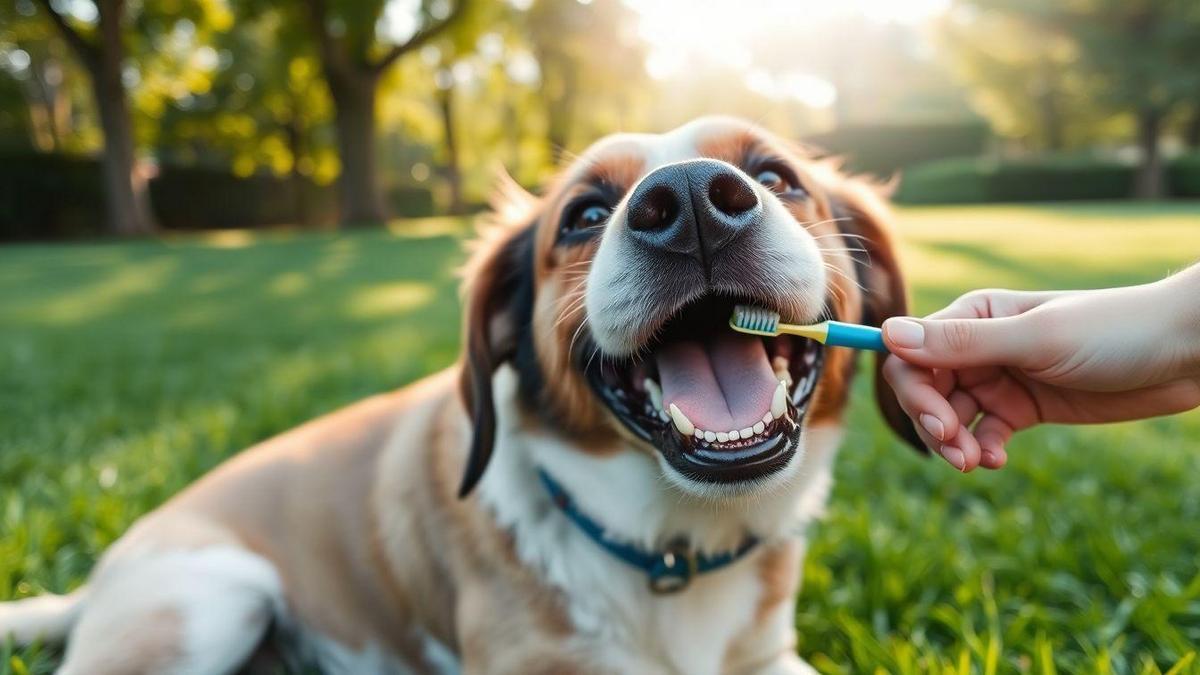
Dental Care for Dogs
Why Dental Health Matters for Dogs
When we think about our furry friends, dental health might not be the first thing that comes to mind. But believe us, it matters a lot! Just like us, dogs can suffer from dental issues. Poor dental health can lead to pain, infection, and even serious diseases that affect their heart and kidneys. Keeping our dog’s teeth clean can help them live a longer, happier life. It’s like giving them a shiny new toy—only this one helps them chew their food comfortably!
Simple Dental Care Tips for Pet Owners
So, how do we keep our dogs’ teeth in tip-top shape? Here are some simple tips that we can easily follow:
- Brush Their Teeth: Aim to brush our dog’s teeth at least two to three times a week. Use a toothbrush made for dogs and toothpaste that is safe for them.
- Dental Chews: These are like treats that help clean their teeth while they chew. Look for ones that are approved by the Veterinary Oral Health Council (VOHC).
- Regular Vet Visits: Our vet can check our dog’s teeth during their regular check-ups. They can also do professional cleanings if needed.
- Watch Their Diet: Feeding our dogs a balanced diet can help prevent dental problems. Some foods are specially made to promote dental health.
Here’s a quick table to help us remember these tips:
| Tip | Frequency |
|---|---|
| Brush Teeth | 2-3 times a week |
| Give Dental Chews | Daily |
| Vet Check-Ups | Every 6-12 months |
| Balanced Diet | Daily |
Preventing Dental Disease in Dogs
Preventing dental disease is easier than it sounds! By keeping up with our dog’s dental care, we can dodge many potential problems. Here are some ways to prevent those pesky issues:
- Start Early: If we can, start brushing our puppy’s teeth as soon as they have them. It helps them get used to the process.
- Use Dental Toys: There are toys designed to clean teeth while our dogs play. They can be a fun way to promote dental health!
- Stay Alert: Pay attention to any changes in our dog’s mouth—like bad breath or swollen gums. These could be signs of dental issues.
By taking these steps, we can help our dogs avoid dental diseases and keep their smiles bright!
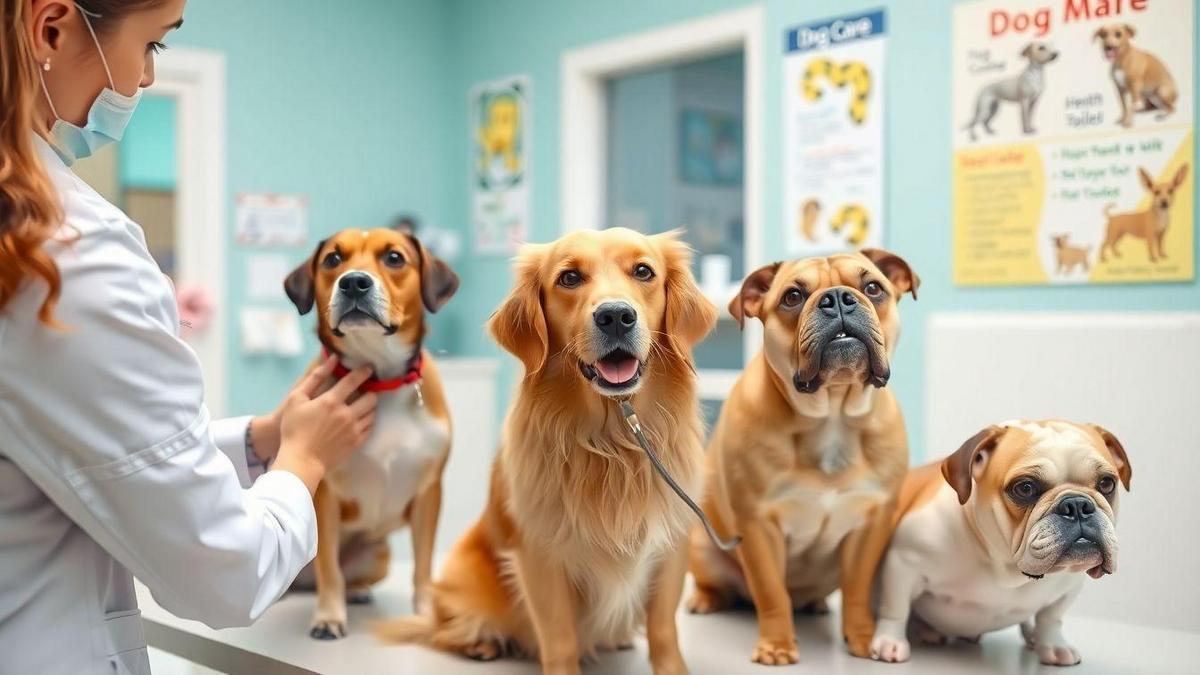
Understanding Canine Health Issues by Breed
Breed-Specific Health Problems
When we think about our furry friends, it’s crucial to recognize that different breeds can face different health issues. Some breeds are more prone to certain conditions than others. For example, bulldogs often deal with breathing problems due to their short snouts, while golden retrievers might face hip dysplasia. Knowing these breed-specific health problems helps us be better pet parents.
Here’s a quick glance at some common breed-specific health problems:
| Breed | Common Health Issues |
|---|---|
| Bulldog | Brachycephalic airway syndrome |
| Golden Retriever | Hip dysplasia, cancer |
| Dachshund | Intervertebral disc disease |
| Boxer | Heart conditions |
| Great Dane | Bloat, hip dysplasia |
Tailoring Care to Your Dog’s Breed
We can’t just throw all dogs into the same basket. Each breed has its own needs and care requirements. For instance, a Chihuahua might need less exercise than a Labrador Retriever. By tailoring our care to our dog’s breed, we can help them live happier and healthier lives.
Here are a few tips for customizing care:
- Diet: Different breeds have different dietary needs. Larger breeds may need food that supports joint health, while smaller breeds might need calorie-dense food.
- Exercise: Some dogs need more playtime than others. Knowing how much exercise our dog needs is essential for their well-being.
- Grooming: Long-haired breeds often require more grooming than short-haired ones. Regular brushing can keep their coats healthy.
Importance of Breed Awareness in Dog Care
Being aware of our dog’s breed and its specific needs is like having a map for a journey. It guides us in providing the best care possible. Understanding these details not only helps us prevent health issues but also builds a stronger bond with our furry companions.
So, let’s take the time to learn about our dog’s breed. We can consult with our veterinarians, read up on breed characteristics, and join communities of dog lovers who share similar interests. This knowledge is the foundation of good pet care and keeps our dogs happy and healthy.
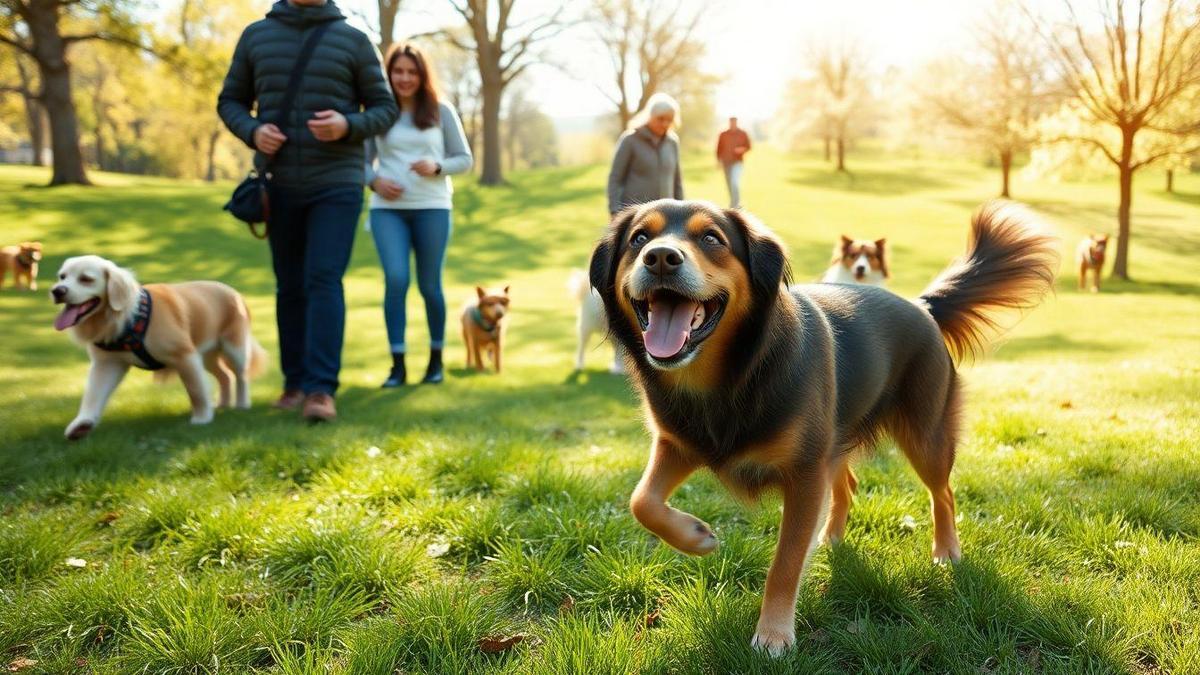
The Importance of Socialization for Dog Health
How Socialization Affects Behavior and Health
We all know that dogs are social animals. When we think about it, socialization is like a key ingredient in the recipe for a happy and healthy dog. Just like us, dogs need to interact with other dogs and people to feel comfortable and confident. When our furry friends are well-socialized, they tend to be more well-adjusted and less anxious.
Lack of socialization can lead to behavioral issues, such as aggression or fearfulness. It’s like putting a child in a bubble; they might not know how to handle the world outside. Studies show that dogs who are socialized properly are less likely to develop health problems related to stress and anxiety. So, let’s not underestimate the power of a good doggy playdate!
Tips for Socializing Your Dog
Now that we see how important socialization is, let’s talk about some tips to help us socialize our dogs effectively. Here are a few strategies we can use:
- Start Early: If we have a puppy, this is the perfect time to introduce them to new experiences. Take them to different places, meet new people, and let them interact with other dogs.
- Positive Reinforcement: When our dog behaves well during social interactions, we should reward them with treats or praise. This encourages good behavior and makes them look forward to socializing.
- Join Classes: Consider enrolling our dog in obedience or socialization classes. It’s a great way for them to meet other dogs and learn how to behave around them.
- Regular Outings: Take our dog to parks, pet stores, or dog-friendly events. The more experiences they have, the more comfortable they’ll become.
Building a Well-Adjusted Dog
Building a well-adjusted dog doesn’t happen overnight. It’s a journey we embark on together. We need to be patient and consistent. Here’s a simple table to help us track our dog’s socialization progress:
| Activity | Frequency | Notes |
|---|---|---|
| Meet new dogs | Weekly | Focus on friendly dogs |
| Visit busy places | Twice a month | Observe reactions |
| Attend training classes | Monthly | Look for improvement |
| Playdates with friends’ dogs | Weekly | Keep it fun and relaxed |
By following these tips and keeping track of our progress, we can help our dogs become social butterflies. This not only enhances their quality of life but also strengthens the bond we share with them.
Conclusion
In conclusion, taking care of our furry friends is a team effort that requires our attention and love. By understanding the 7 common dog health problems and how to prevent them, we can ensure our pups enjoy a long, happy life. Regular vet check-ups, a balanced diet, consistent exercise, and proper grooming are all essential pieces of the puzzle. Let’s commit to being proactive, catching health issues early, and providing the best care possible.
Remember, our dogs rely on us to be their advocates. So, let’s roll up our sleeves and get to work! After all, a healthy dog is a happy dog, and nothing beats the joy of seeing our pets thrive. If you’re hungry for more tips and insights, don’t hesitate to check out more articles on redeversatil.com. Happy reading!
Frequently Asked Questions
What are the 7 common dog health problems?
We often see issues like obesity, dental disease, skin allergies, ear infections, arthritis, parasites, and heartworm disease. Recognizing these is the first step in keeping our pups healthy.
How can we prevent obesity in our dogs?
To prevent obesity, we should give our dogs regular exercise and watch their food portions. Healthy snacks are a great idea. Let’s make sure they stay active!
What can we do for our dog’s dental health?
Brushing our dog’s teeth regularly is key! We can also give them dental chews. This keeps their teeth clean and their breath fresh.
How do we keep our dogs safe from parasites?
We need to use preventive treatments for fleas, ticks, and worms. Regular vet check-ups will help keep our dogs parasite-free. It’s all about staying one step ahead!
Why should we learn about the 7 Common Dog Health Problems and How to Prevent Them?
Learning about these problems helps us take better care of our dogs. By understanding them, we can prevent issues before they start and ensure our furry friends lead longer, happier lives.

3 comentários em “7 Common Dog Health Problems and Their Prevention”